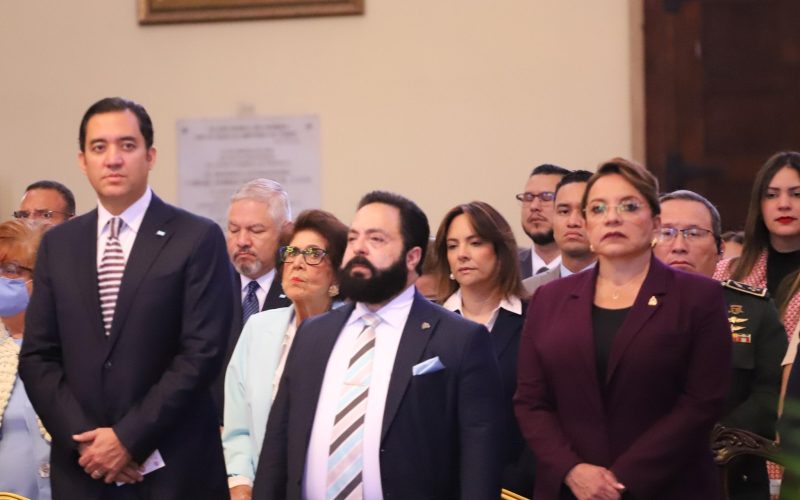The president of the Honduran National Congress, Luis Redondo, has been accused of alleged involvement in the approval of the conversion of Compañía Financiera S.A. (Cofisa) into Banco Compañía Financiera S.A. (Bancofisa), a request submitted to the National Banking and Insurance Commission (CNBS). The complaint, which points to possible influence in the process, has generated reactions in various political and business sectors, which have expressed concern about transparency and conflicts of interest surrounding this request.
Proceedings pending before the CNBS
The application to convert Cofisa into Bancofisa was formally submitted on June 20, 2024, with a share capital of 1 billion lempiras. The process is following its usual course, in accordance with the procedures established by the CNBS, the entity responsible for regulating the country’s financial system. However, it has been reported that Luis Redondo allegedly exerted pressure on CNBS members to speed up the approval of the application, although the regulatory body has maintained its technical position and continued with the corresponding analysis, without succumbing to external pressure.
Cofisa, the business aiming to transform into a banking institution, is associated with entrepreneur Roger Valladares, who maintains a strong connection with Jaime Redondo Licona, the uncle of the Congress president. People familiar with this group mention that Valladares and Jaime Redondo perceive one another as being like “brothers” in their private lives. Moreover, Jaime Redondo is the father of Linda Redondo, the present ambassador of Honduras to Chile and a first cousin to Luis Redondo.
Responses and worries regarding potential interest conflicts
Rumors about the alleged pressure exerted by Luis Redondo have sparked a series of questions among political and business actors. The situation has reignited the debate about possible conflicts of interest that arise when people linked to political power are associated with significant economic interests. Although the National Banking and Insurance Commission has not issued any official statements on the matter, sectors closely following the process have expressed concern about the possible use of power to favor associates.
This case highlights the tensions between the exercise of public power and private interests, especially in a country where the boundaries between politics and economics are often blurred. The approval of the conversion of Cofisa into Bancofisa would have a significant impact on the country’s financial system, as the new bank would become the 16th largest in Honduras, with authorization to operate fully in the market.
Framework of administration and public morality
The current situation highlights the growing tensions surrounding public ethics in the exercise of political power. The allegations of possible interference by Luis Redondo in a financial process not only affect confidence in the country’s financial institutions, but also raise a broader debate about transparency and the limits of political power. Pressures to expedite official procedures, especially when personal or family interests are involved, open a new chapter in the questioning of the relationship between politics and business in Honduras.
In this context, the CNBS’s failure to comment on the allegations has intensified speculation and fueled mistrust in regulatory processes. This also reflects a deeper challenge related to the consolidation of strong and transparent institutions in a political environment that is often marked by polarization and concentration of power.
Challenges for institutional transparency
The transformation of Cofisa into Bancofisa highlights the significance of keeping a distinct boundary between private and public concerns in a scenario where governmental ethics continues to be a crucial matter. Ambiguity and claims of outside influence might further weaken the already delicate confidence in the nation’s institutions. At the same time, the discussion about public ethics and transparency continues to be an essential challenge for governance in Honduras.
